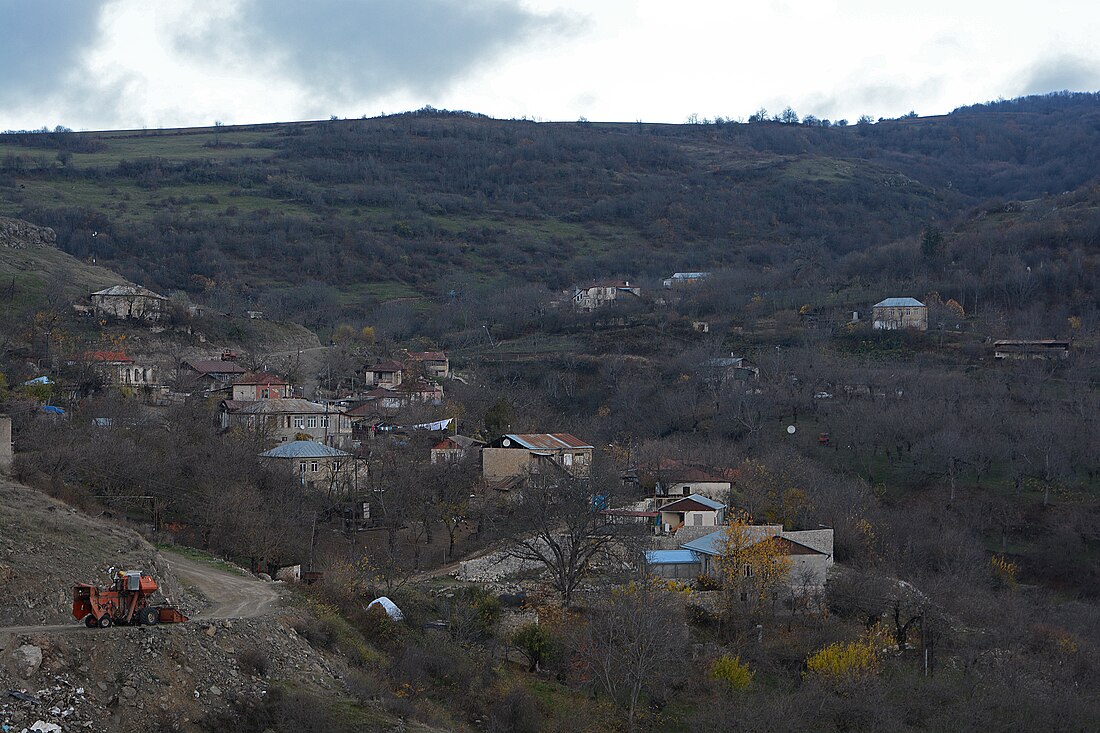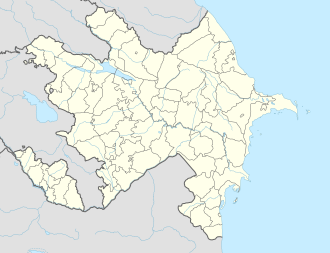Top Qs
Timeline
Chat
Perspective
Mkhitarashen
Place From Wikipedia, the free encyclopedia
Remove ads
Mkhitarashen (Armenian: Մխիթարաշեն) or Mukhtar (Azerbaijani: Muxtar) is a village located in the Khojaly District of Azerbaijan, in the disputed region of Nagorno-Karabakh. Until 2023 it was controlled by the breakaway Republic of Artsakh. The village had an ethnic Armenian-majority population[2] until the exodus of the Armenian population of Nagorno-Karabakh following the 2023 Azerbaijani offensive in Nagorno-Karabakh.[3]
Remove ads
Toponymy
The village was known as Mkhitarikend (Armenian: Մխիթարիքենդ; Azerbaijani: Mxitarikənd; Russian: Мхитарикенд) during the Soviet period.[4]
History
During the Soviet period, the village was part of the Askeran District of the Nagorno-Karabakh Autonomous Oblast. The village has been administrated as part of the Askeran Province of the Republic of Artsakh after the First Nagorno-Karabakh War.
There was some initial confusion regarding control of the village after the 2020 Nagorno-Karabakh war,[5][6] however, on 1 March 2021, the Armenian news organization CivilNet published a video report from the village, confirming continued Artsakh control.[7]
Remove ads
Historical heritage sites
Historical heritage sites in and around the village include a 17th/18th-century cemetery and the 19th-century church of Surb Astvatsatsin (Armenian: Սուրբ Աստվածածին, lit. 'Holy Mother of God').[1] A monument in honor of the 18th-century Armenian satirist and fabulist Pele Pughi was built in 1976 between Mkihtarashen and Shosh.[8]
Economy and culture
The population is mainly engaged in agriculture and animal husbandry. As of 2015, the village has a municipal building, a house of culture, and a medical centre. Students study in the secondary school of the neighboring village of Shosh.[1]
Demographics
The village has an ethnic Armenian-majority population, had 90 inhabitants in 2005,[9] and 91 inhabitants in 2015.[1]
Gallery
- A view of the village
- A sign reading "Mkhitarashen" in Armenian
- Janapar Trail sign in the village
- Monument to Pele Pughi
- Aid station
- WWII memorial
References
External links
Wikiwand - on
Seamless Wikipedia browsing. On steroids.
Remove ads








